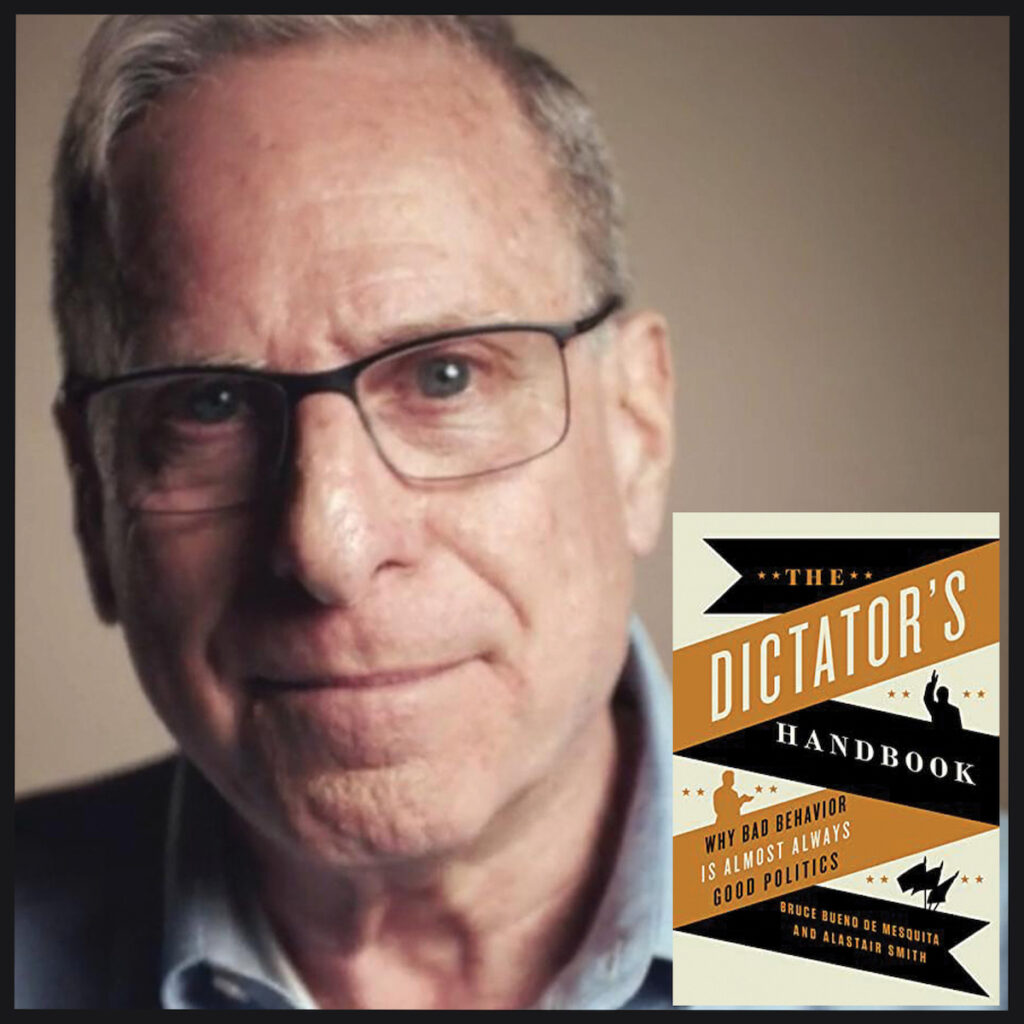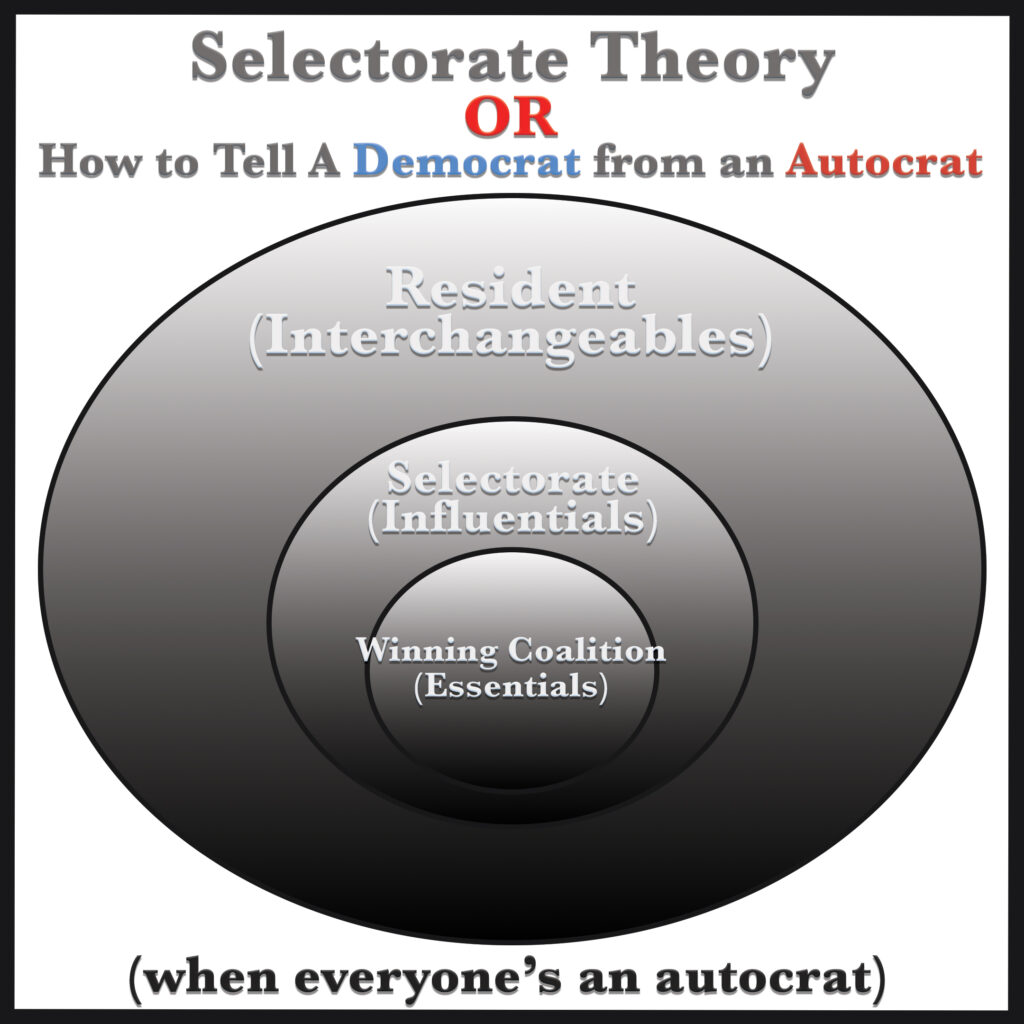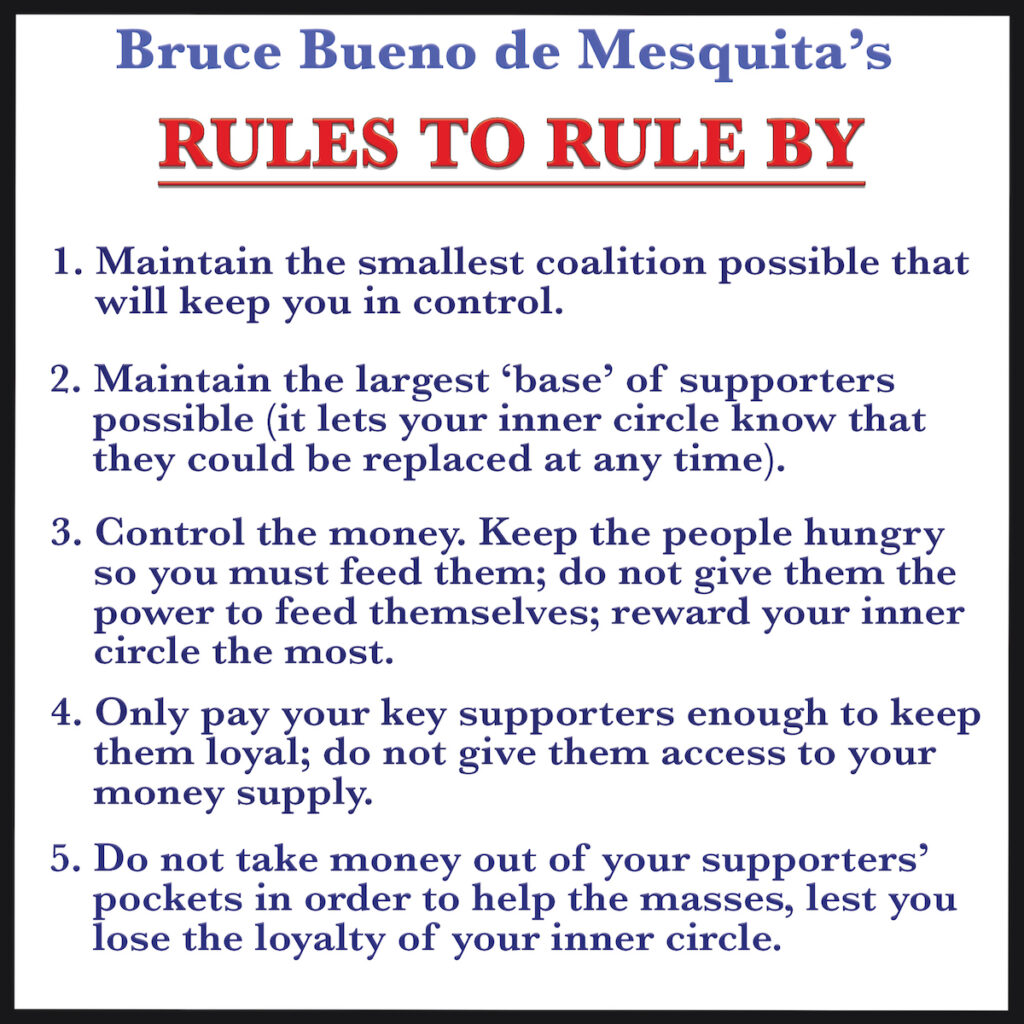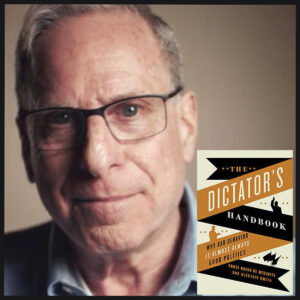
- The Dictator’s Handbook: Why Bad Behavior is Almost Always Good Politics
- By Bruce Bueno de Mesquita, Alastair Smith
- Goodreads Rating: 4.05
- Amazon Rating: 4.6
- 462 Pages
- Kindle: $11.99
- Paperback: $15.91
About The Author:
Political Scientist Bruce Bueno de Mesquita is a Professor of Politics at New York University, as well as a senior fellow at Stanford University’s Hoover Institute. He has earned a reputation for utilizing the mathematics behind human behavior to predict various political maneuverings, even fashioning a business around this skill (Selectors, LLC) where he advises private and public clients how to gain a competitive advantage in negotiations and logistical decision-making. Much of his predictions are based on game theory strategies combined with his own creation, Selectorate Theory, which has been able to define the difference between various forms of government based purely on the size of the coalition needed to help a leader gain and maintain control.

About the Book:
In The Dictator’s Handbook, Bruce (and his colleague on many writing collaborations, Alastair Smith), explore the darker side of ration self-interest. Selectorate Theory is an important first step in solidifying the notion that all people are equally created, and thus react in predictable patterns based on their surrounding political and economic environments. All nationalism, populism, tribalism and racism aside, those in control live in constant survival mode, and with tunnel vision cater only to those few constituents necessary to hold onto political control (their “winning coalition”).
What Bruce has found is that in the game of politics, words are the smokescreen (or ‘bluff’) that hide consistent and predictable actions by leaders, who will always follow narrow self-interest over any concern for the people under their charge. Consequently, the only way someone else’s interests are considered is if they personally have something to do with whether a leader stays in power or not. In many countries, the outer circle of society is ‘interchangeable’—they are an easily replaceable pool of slave labor, who will bend to the will of an autocrat in order to simply survive.

Third Option Takeaways:
Bruce’s conclusion: the more inclusive we make Democracy, the more evenly the wealth of a society will be distributed; for this reason, the first step toward strengthening our Democracy would be to eliminate practices such as gerrymandering, the electoral college, voting restrictions, and vote suppression, which allow smaller coalitions to wield disproportionally more Control. Oppression is like rust, that never sleeps, so in order to protect Democracy from it we first need to ‘double down’ on our belief that Democracy should lead us, and not an economic system designed to create the wealth disparity autocrats crave. Make election day a national holiday, make voting mandatory, make voting simple to do, make sure the people get to vote on some actual issues (not just some ‘representative’ paid to represent profit-seeking, not people), and if how a society treats its most vulnerable members is any real measure, then it would be wise to let the disenfranchised weigh in on the subject of their neglect, incarceration, poverty, police brutality, etc.
Democracy is being crowded out, and with it, the chance to form larger coalitions who could take on America’s economic autocrats. As Bruce says, “divide and conquer is a terrific principle for coming to power in a Democracy,” but logic suggests that even when various coalitions (green energy, concerned scientists, third parties, gun control advocates, grassroots organizations, etc.) are seemingly fighting for the same thing (Democracy), they have yet to join forces under one larger platform. The Third Option, of course, is trying to change all that. Check out our exclusive article on Bruce Bueno de Mesquita, where we break down his many findings, and attempt to utilize them toward more democratic solutions.
Other Works:
Books:
- The Spoils of War
- The Predictioneer’s Game
- The War Trap
- The Logic of Political Survival
- The Invention of Power
- How to Win in a Winner Take All World
Articles:
- Thinking inside the box: A closer look at democracy and human rights
- Leader survival, revolutions, and the nature of government finance
- Foreign aid and policy concessions
- A political economy of aid
- Development and democracy
- Political Survival and Endogenous Institutional Change
Videos:

 News We Can Use: Political Scientist Bruce Bueno De Mesquita on the State of the State
News We Can Use: Political Scientist Bruce Bueno De Mesquita on the State of the State